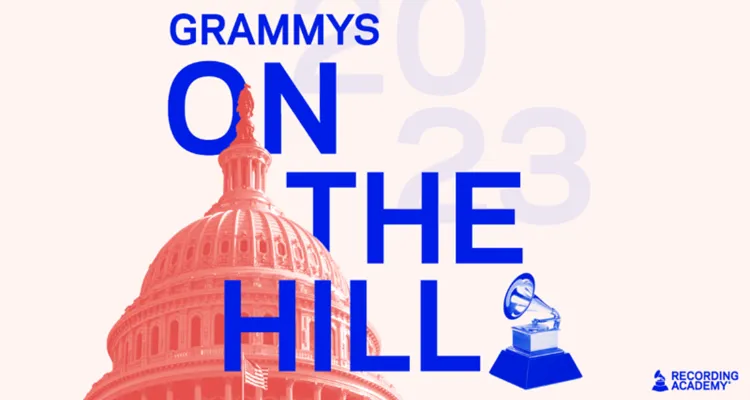At the Recording Academy’s Annual Grammys on the Hill event, the RAP (Restoring Artistic Protection) Act was reintroduced into Congress after failing to gain traction in 2022.
Recording Academy leaders and members joined Congressmen Hank Johnson (D-GA) and Jamaal Bowman (D-NY) at a press conference on Capitol Hill to reintroduce the Restoring Artistic Protection (RAP) Act. The RAP Act is intended to protect artists’ freedom of creative expression, limiting the use of song lyrics in court — a common practice that disproportionately affects rap and hip-hop artists.
Artists and industry advocates, including Academy CEO Harvey Mason Jr. and Academy Black Music Collective Chair Rico Love, shared their views on the importance of passing the legislation and ensuring all artists can create freely without fear of criminalization of their work.
The announcement follows the Recording Academy’s Annual Grammys on the Hill. This two-day event honored 13-time Grammy winner Pharrell Williams, Senate Majority Leader Chuck Schumer, and Senator Bill Cassidy for their stalwart support of music creators, connecting members of Congress from both sides of the aisle to advocate for the RAP Act, the HITS Act, the American Music Fairness Act, and reform of the live event ticketing marketplace.
“Grammys on the Hill has been bringing music creators to Capitol Hill for more than 20 years to elevate policy issues that impact our community. Today, we’re proud to see our Academy members’ commitment to advocacy come to life with the reintroduction of the Restoring Artistic Protection Act,” reads the statement from Harvey Mason Jr. and Rico Love.
“We must safeguard artists’ freedom to create at all costs and work to eradicate the biases that come with the unconstitutional practice of using lyrics as evidence. We are grateful to Congressmen Johnson and Bowman for their unwavering commitment to music people and look forward to working alongside them to advance this issue.”
“This legislation is long overdue,” said Congressman Johnson. “For too long, artists — particularly young Black artists — have been unfairly targeted by prosecutors who use their lyrics as evidence of guilt, even though there is no evidence that the lyrics are anything more than creative expression. When you allow music and creativity to be silenced, you’re opening the door for other realms of free speech to be curtailed as well.”
“The government should not be able to silence artists simply because they write, draw, sing, or rap about controversial or taboo subjects. The Restoring Artistic Protection Act (RAP Act) would protect artists’ First Amendment rights by limiting the admissibility of their lyrics as evidence in criminal and civil proceedings.”
“Rap, hip-hop, and every lyrical, musical piece is a beautiful form of art and expression that must be protected,” said Congressman Bowman. “I am proud to introduce the RAP Act alongside Rep. Hank Johnson. Our judicial system disparately criminalizes Black and Brown people, including Black and Brown creativity.”
“Evidence shows when juries believe lyrics to be rap lyrics, there’s a tendency to presume it’s a confession, whereas lyrics for other genres of music are understood to be art, not factual reporting. This act would ensure that our evidentiary standards protect the First Amendment right to freedom of expression. We cannot imprison our talented artists for expressing their experiences, nor will we let their creativity be suppressed.”
There are more than 500 documented cases since the 2000s of prosecutors using lyrics as criminal evidence in court against an artist defendant. A 2016 study by criminologists at the University of California examined whether rap lyrics are evaluated using stereotypes. That study found that rap was evaluated more negatively than other genres of music, highlighting the possibility that bias against rap lyrics could inappropriately sway jurors when admitted as evidence.

